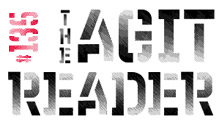
From Memphis To Hollywood: Bootleg Vol. 2
Columbia/Legacy
Given the Rick Rubin–fueled career renaissance Johnny Cash experienced during the last decade of his life, it should come as no surprise that we’ve continued to see new Cash releases hit the shelves since the Man in Black’s death in 2003. While much of this “new” material has really just added to an already long list of greatest hits compilations, previously unavailable studio recordings have arrived in two different forms. First, Rubin has collected Cash’s final recordings into two additions to the American series of albums: 2006’s chart-topping American V: A Hundred Highways and last year’s American VI: Ain’t No Grave. Second, both Cash’s Tennessee vaults and his record labels’ archives have been searched for unreleased gems and compiled into collections like Personal File, a two-disc set of self-produced solo, acoustic recordings.
By name, From Memphis to Hollywood: Bootleg Vol. 2 is the successor to Personal File, which represented the first entry in a series of “official” bootlegs. And much like Columbia’s Bob Dylan Bootleg Series, this latest Cash entry at times veers in completely different directions from the quiet, intimate songs that made up the first Cash Bootleg volume. Most noticeably, while Personal File featured recordings produced from 1973 to 1982—a relatively quiet period in Cash’s career—From Memphis to Hollywood takes us back in time to the days before the country legend had made his name, and it then guides us through his glory years.
The two-disc set begins fittingly with Cash’s first live radio broadcast, a 15-minute set aired on Memphis station KWEM during a Saturday afternoon in 1955. While the four songs performed by Cash and Tennessee Two cohorts Luther Perkins and Marshall Grant aren’t the most foremost in the Cash canon and come sandwiched between Cash’s spoken advertisements for Home Equipment Company (which, incidentally, was also the site of Cash’s day job at the time), this brief recording is a treasure for both Cash enthusiasts and those interested in American history. Cash’s delivery is raw but already contains more than enough hints at his signature style, and listening to the AM radio–fidelity recording of Cash and his bandmates running through a song like “Wide Open Road” transports listeners into their grandfather’s car riding down some forgotten byway in 1950s America.
The rest of the collection features demos from Cash’s years recording with Sun, along with singles and studio outtakes recorded in the late ’50s and the ’60s, after he had moved on to Columbia records. The earliest songs show Cash—performing both solo and with the Tennessee Two—honing his craft. The set includes first runs through standards like “I Walk The Line” and “Big River,” as well as folk gems like “Goodnight Irene” and some fine examples of the spiritual songs that would feature heavily throughout Cash’s career. The later material finds Cash incorporating a variety of performers into fleshed-out tracks that will sound familiar to many. A welcome inclusion is a number of Western songs, like “Johnny Yuma Theme” and “Hardin Wouldn’t Run,” and Cash’s career-long affinity for acknowledging fellow songwriters is represented with an interestingly nimble version of Dylan’s “One Too Many Mornings” recorded in 1965. Other highlights include some of Cash’s most tender moments, such as “There’s A Mother Always Waiting” and “Six White Horses,” a sort of country music re-imagining of “Abraham, Martin and John” that was a Top 10 country hit for Cash’s younger brother, Tommy.
Viewed as a whole, the wide range of styles and arrangements of songs on From Memphis to Hollywood provides a welcome counterpoint to the more narrowly focused Personal File. For that reason, From Memphis to Hollywood serves as as an ideal entrance point for those who would like to delve a little further into Cash’s catalog. As for those already devoted to Johnny Cash, this collection will certainly raise hopes that similar treasures might be found amongst his later recordings.
Ron Wadlinger
PAST PERFECTS
The Witches, A Haunted Person's Guide to...
Fela Kuti, "Power Show" Batch, Part II
Fela Kuti, "Power Show" Batch, Part I
Willie Wright, Telling the Truth
ESG, Dance to the Best of ESG
Sofrito: Tropical Discotheque
Squirrel Bait, Skag Heaven
Nine Inch Nails, Pretty Hate Machine
Orange Juice, Coals to Newcastle
Tom Petty and the Heartbreakers, Damn the Torpedoes
The New Hope
The Gibson Bros, Build a Raft
The Jon Spencer Blues Explosion, Year One, Extra Width, Orange and Acme
The Church, Deep in the Shallows
